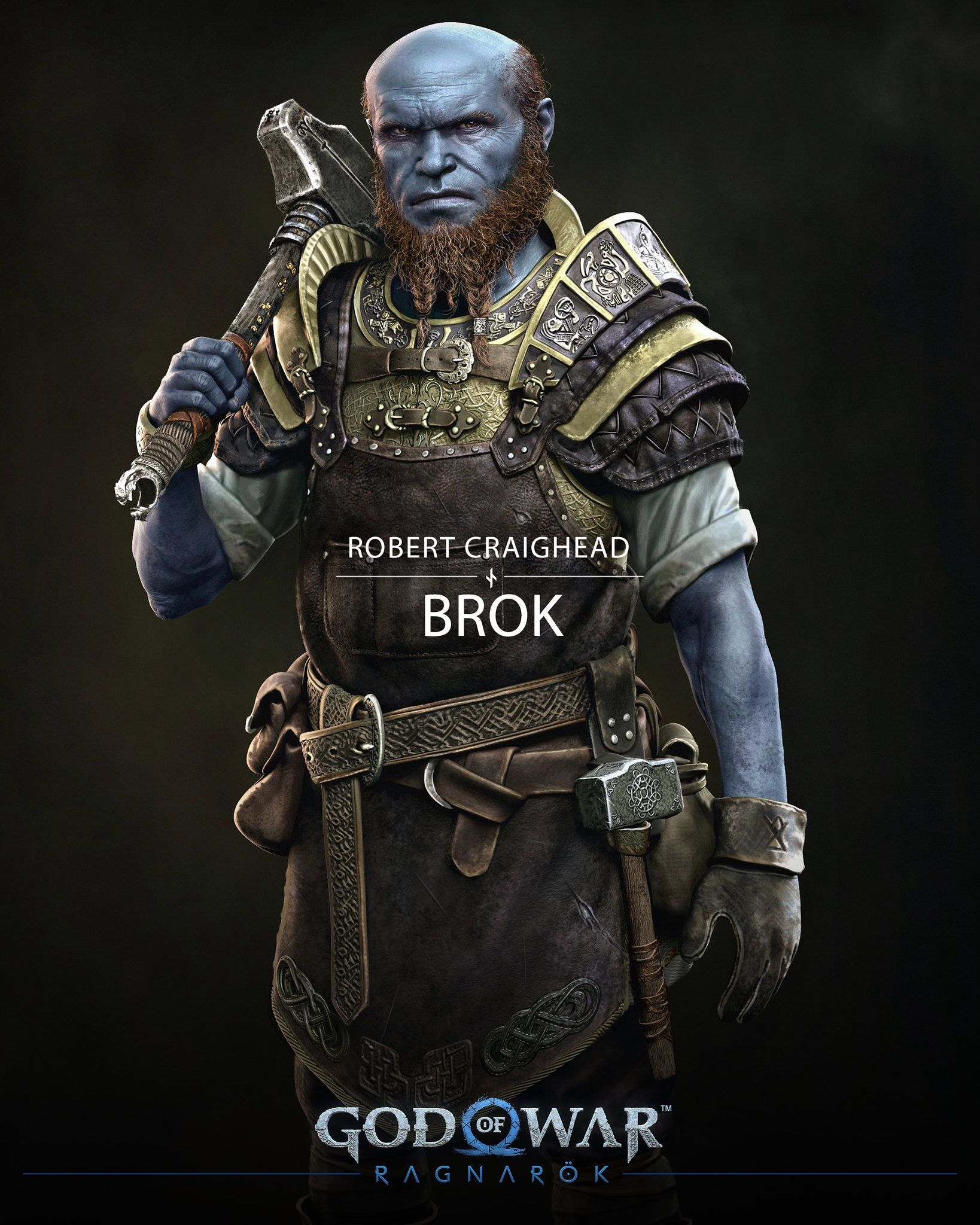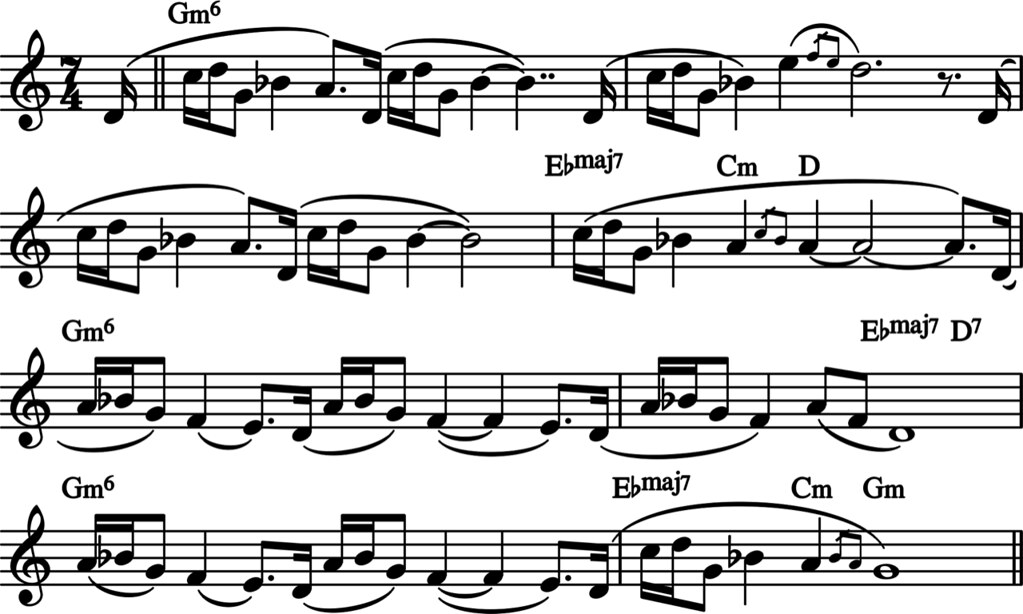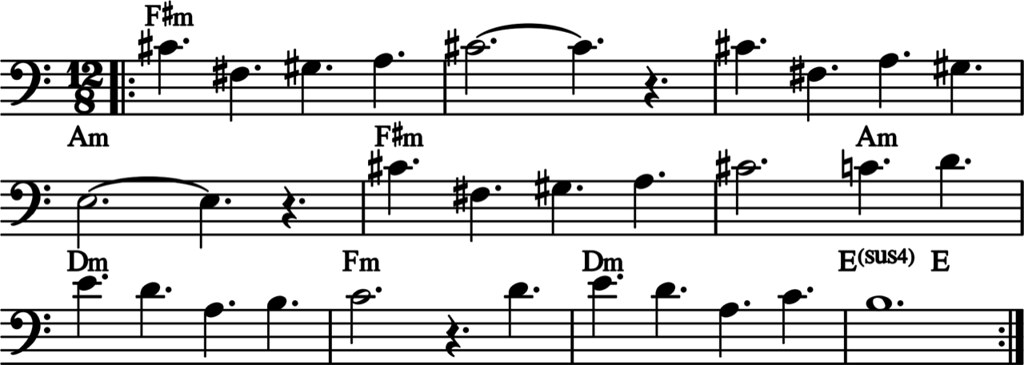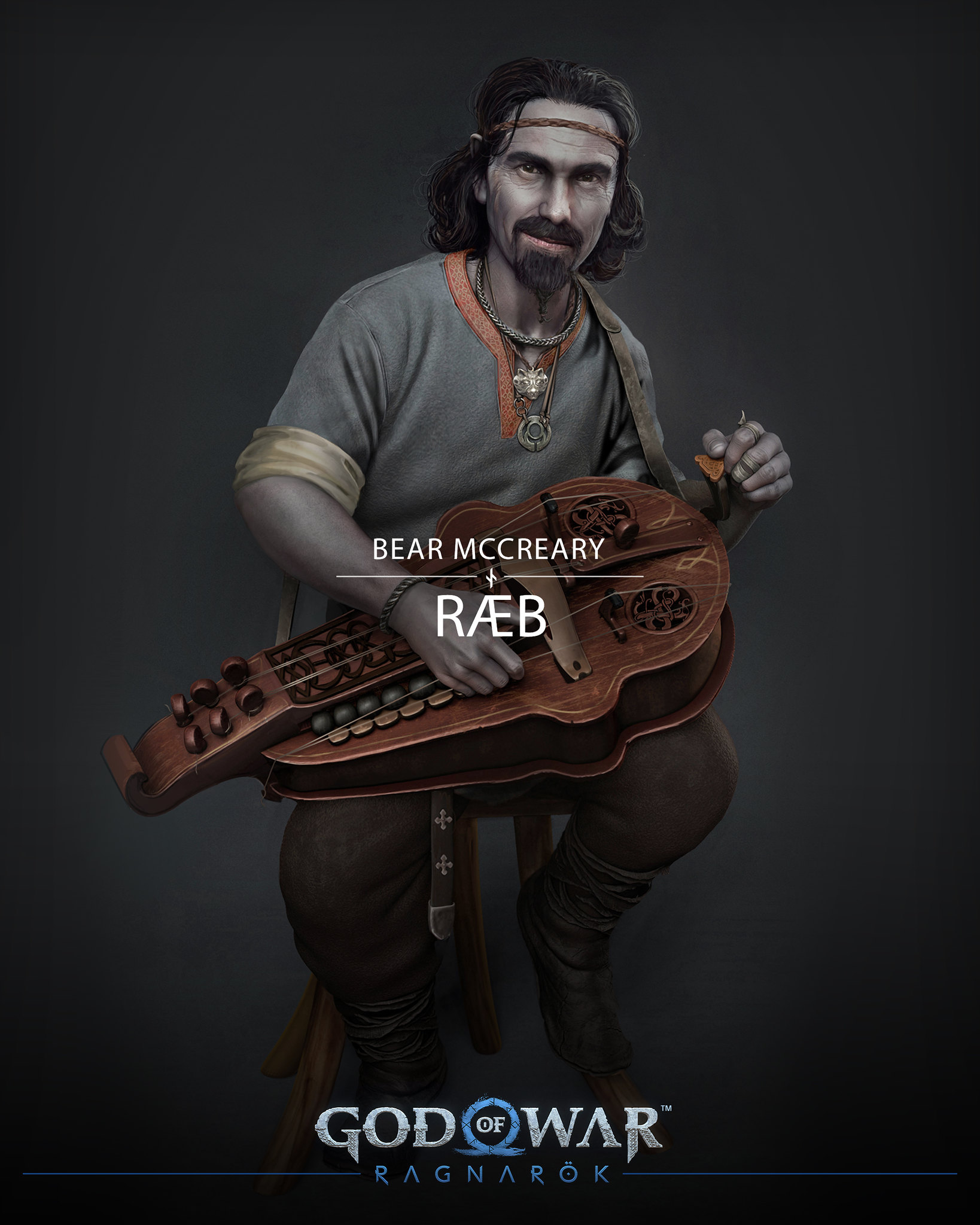One evening in the spring of 2016, at the E3 video game event at the Shrine Auditorium in Los Angeles, I walked across the stage between a packed house and a symphony orchestra to an original theme I wrote that had never been performed in public. finish. Even before the game's title was revealed, audiences were delighted with the gorgeous symphonic soundtrack featuring northern folk instruments, choirs, and strong melodic themes. After opening, the curtain parted and a vision of an older Kratos emerged from the shadows, announcing that a new entry in the PlayStation's hit God of War series was on the horizon, with an aging personality and the promise of a more mature personality. The game launched in 2018 to universal critical acclaim and fan excitement, making the god of vengeance Kratos and his son Atreus among the most beloved video game characters of all time.
In the spring of 2019, I found myself in the Santa Monica studio offices having creative discussions about the game's sequel, God of War Ragnarök. Here, former game director Cory Barlog introduced me to the director of this new game, Eric Williams. Cory and Eric have worked on this franchise together for years, and I immediately felt Eric's passion for the material and depth of expertise. Reading the text explained the size of the god of war Ragnarok. The story of this ambitious sequel expanded the intimate personal drama between Kratos and his son Atreus and introduced no fewer than twelve new characters to the nine realms of Norse mythology. The storyboards and action scenes were more explosive, but the dramatic arcs were just as exciting as the first story. To support this ambitious new musical narrative, I'm going to have to populate God of War Ragnarök with new musical themes. At the same time, they should be mixed with my God of War (2018) material.
For that original game, I eagerly immersed myself in the soundtrack, ready to completely recreate the sound of the franchise to match the more complex tone of this entry. However, this time around I felt pressure to write music in the shadow of my previous work. Players from all over the world have made emotional connections to my musical themes and my work has won many awards in the video game industry. The thought of posting these ideas--and the courage to believe I could improve--and everyone else who freaked me out, delighted me.
I started composing God of War Ragnarök in the summer of 2019, knowing that I was at the beginning of a journey that would be the greatest creative challenge of my career.
Warning: The following contains moderate spoilers for God of War Ragnarök

New themes for new families
God of War Ragnarök is the story of broken families struggling to reform. To support this story, I needed two additional themes to represent the families Kratos and Atreus would meet on their journey.


Subject: Huldra Brothers
Brothers Huldra, Nanny Brock, and Sindry were supporting characters in the final game. They provided the support for Kratos' weaponry, as well as great comic relief and a heartbreaking story about the estranged brothers coming together. Their role in God of War Ragnarök has been greatly expanded and players now travel to their own world of Svartalfheim. I had to work on their topic, a topic that could also tell us something about dwarf culture.
Brok and Sindri's theme opens with a wonderful oom-pah ostinato on Viol and nyckelharpa.

The upbeat nature of the theme is colored by a distinctive rhythmic scale marked by an asymmetrical, 7/4 beat. The groove is peppy but gets heavier as the theme develops.
The real magic of "Huldra Brothers" comes from the melody, which is underlined by the solos. (I'm a self-confessed solo artist, though I think we personally hear a character named Ræb. More on him later.) Their melody is about asymmetrical meters dipping into repeating patterns, with a "Scotch." snap', a common beat in Scottish folk music.

The Huldra brothers' B-themed emotional middle ground means its story has more emotion than comic relief. Indeed, this topic runs through history, perhaps more than any other. As their aria ends, we hear their theme for the last time, in a melancholic cello solo, a departure from the upbeat tone of the opening. At the end of the acoustic album, "Lamentation of a Lord" is built around the orchestral variations of this piece. I won't spoil the story here, but suffice it to say that if I do my job right, this little comedic tune will break your heart before the end credits of God of War Ragnarök.
Theme: Ragnarok
The latest new theme I put into this game was for another family, featuring Asgard's rivals, Thor, his father Odin, and Ragnarök himself. Creating a musical force that could threaten Kratos was a monumental undertaking (its theme begins with a powerful all-male choir chorus oozing menace and power). Trying to write a badass villain in terms of Kratos' strength and raw power was ridiculous. So I looked to the script for inspiration.
Odin, played by Richard Schiff in God of War Ragnarök, defies audience expectations. Eric Williams described it as a snake in the grass. It has a light frame and mainly shares its wide strength. He is not afraid to use violence, but rather prefers to use psychological means to achieve his goals. I also thought of the threat of Ragnarok's death as a storm cloud on the story's horizon. These ideas inspired me to amplify the Ragnarök theme with a gentle, serious, and light ostinato. I wanted this string pattern to convey power and menace with an unrelenting treble rhythm that would reverberate through the soundtrack like distant thunder.

This ostinato gets louder as the story progresses. To top it off, Ragnarok's main melody offers a dark nobility and ominous foreboding, and is often sung by male choirs in Old Norse text.

I spent about six months defining the themes for this game, often editing with my creative partners at Santa Monica Studio. Some of them came easily, but some went through five or six drafts before finding something promising. I particularly struggled with the Atreus theme, initially collapsing under the overwhelming pressure to write a theme that could fit into my most famous song for God of War (2018). In the end, though, I was confident that my new themes for Atreus, Angboda, Huldra Brothers, and Ragnarök matched the melodies I had written for Endgame.

becomes curdled
The God of War Ragnarök soundtrack was an extension of everything I did for God of War (2018) and culminated in one of the best orchestral pieces of my career to date. However, my contributions to the game will go beyond the music.
In the spring of 2019, Eric Williams and Corey Barlog completed our first creative meeting on the project by pitching concept art. I was amazed to see at the bottom of the heap a stocky dwarf with a nice car, with a familiar face and perhaps too handsome! At first I thought the game's brilliant art director, Rafe Grassetti, had given me a sketch of a troll. I was surprised when Eric and Kory told me that this photo was no joke - it was a character named Raeb, and they wanted to include her in the game as a character Kratos and Atreus would meet on their journey, which they intended to do. Do yourself a motion capture and voice acting!
Two years later, in the summer of 2021, he joined PlayStation Santa Monica Studio, not as a composer, but as an actor. I got to the motion capture stage and the crew placed tiny sensors all over my body and in my car. I've found that my body movements are captured by these sensors and instantly converted into animation data for my digital avatar.
Stepping onto the platform, I was struck by how barren it was: like an industrial warehouse with high-tech equipment clustered around the edges of an empty space. The screens adorned the suburbs, and as I looked at them, I saw real magic, a digital fantasy landscape that represented the Svartalfheim sector. When I entered the digital tape, I noticed Ræb and quickly knew I was walking! I stopped, happy as a kid playing with new toys, and started jumping and flapping my arms, watching my digital avatar recreate my every move in real time. It was like looking into a funny weird house mirror where I saw a digital elf reflection of myself! I laughed uncontrollably as I moved my body and Rabe followed.
To become an actor in a video game, you either have to film it in action or do a photo session. Usually, one or two sensors are placed on the hands to capture arm movements, the team told me, but any specific finger movements are usually triggered later. However, since a lot of my motion capture work involves playing an instrument, they decided to try putting sensors on all of my fingers. They've never done anything like this before! Of course, once I was done, I sat on the bars and watched the screen as Ripe's digital fingers swept across the keys and tracked my subtle movements.
Recording the performance on set was the easy part. I also had to pretend I was in a crowded bar and imitate the physical behaviors of various interactions with Kratos and Atreus. I immersed myself in the moment and enjoyed myself as much as possible, trying not to think about the potentially disturbing reality of me in leather pajamas, covered in knitwear, pretending to be a dwarf driving a car, people in the middle of the room analyzing, searching, looking. to me.
I loved the motion capture physics. As fun as it was, it didn't prepare me for the excitement of recording the Ripe interview a few weeks later. I worked with writer Matt Sophos in a small Los Angeles recording studio and he accompanied me on vocal performances. Although I never played it right, I noticed that my work as an actor working with Matt was like working as an author with a director or producer when writing the narrative. Either way, our common goal is to make the audience feel something specific. When I compose, I use notes, chords, and rhythms to achieve this. I quickly realized that the only difference when I'm an actor is that I use rhythm, effect, and tone of voice to achieve the same goal.
I felt an electric emotion created by Ræb for God of War Ragnarok. The more you work with Matt on the lines, the more you understand Ripe's situation and especially her feelings for Kratos' friend Mimir. I was coming home from the recording studio, I felt dizzy and my heart was pounding in my chest. I can safely say that the few hours I spent recording the Ripe interview was one of the most exciting creative experiences of my life. While I don't think I'll be quitting my day job anytime soon, I would love the opportunity to explore this art form even more!
To learn more about my work on God of War Ragnarök, check out my full blog post on my official website.

